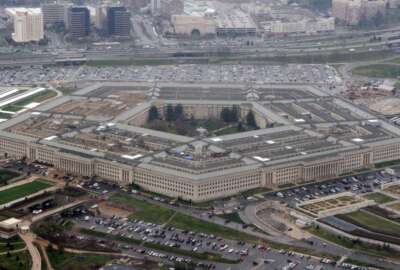Senate Approps target OTA transparency, MTA delays
Senate appropriators want the Pentagon to be more transparent about OTAs, MTAs and how funds move through various organizations.
The Senate Appropriations Committee’s fiscal 2025 defense spending bill is out and Senate appropriators want more oversight on major defense reforms, such as Mid-Tier Acquisition, and how DoD research funds might be benefiting foreign defense organizations.
More transparency in DoD’s use of OTAs
The Defense Department is increasingly relying on Other Transaction Authority contracts (OTAs) to do business with non-traditional defense contractors. In fiscal 2022, for instance, DoD took about 4,400 actions worth $10.7 billion. Between 2016 and 2022, it took 15,000 OTA actions worth about $70 billion.
Most OTAs go to consortia, which consist of non-traditional companies, defense contractors, or academic groups, but there is little transparency about those OTAs and who receives them.
Senate appropriators want the under secretary of defense for acquisition and sustainment to submit a report to the armed services committees detailing the DoD’s use of OTA agreements in fiscal 2024, including an analysis comparing the success rates of follow-on production contracts initiated after the initial OTA agreements ended with lessons learned from conventional Federal Acquisition Regulation (FAR)-based acquisitions.
The committee also wants the DoD to provide a detailed breakdown of how much money was awarded to each individual vendor that is part of a consortium.
Meanwhile, Sen. Catherine Cortez Masto (D-Nev.) introduced legislation last week to establish a pilot program for tracking awards made through OTA.
Mid-Tier Acquisition and rapid prototyping program concerns
The Defense Department is also increasingly turning to middle-tier acquisition (MTA) to quickly start programs and get the equipment the military services need into the field. Most MTA programs, however, will reach the end of their five-year authority this fiscal year, and they will either be expected to deliver capability or transition to another acquisition pathway.
Additionally, the Government Accountability Office recently found that five out of 20 largest MTA programs report delays to a key milestone that’s supposed to demonstrate capability. The watchdog also found that the DoD has a tendency to continue with traditional, linear development and fielding processes, which includes five years of rapid prototyping followed by five years of rapid fielding or transitioning into major capability acquisition pathways.
“Contrary to congressional intent when establishing MTAs, this creates programs with an average 10-year development cycle for major capability acquisition programs. Some programs, like the B–52 Commercial Engine Replacement Program, are not expected to hit initial operating capability until at least 14 years after initiation as an MTA,” Senate appropriations said in the report.
“These concerns have been raised previously by this Committee, and concerns remain that MTAs designed to field mature capabilities or rapidly prototype technologies, are instead being used to circumvent traditional reporting requirements for major acquisition programs without resulting in capability deliveries in a timely manner.”
As in previous years, Senate appropriators want the under secretaries of defense for research and engineering and acquisition and sustainment in coordination with the services to submit a report to lawmakers detailing every approved acquisition program by the year of initiation and programs pending approval in fiscal 2026 that are using prototyping or accelerated acquisition authorities. The Pentagon comptroller is required to certify full funding of the acquisition strategies for these programs, as well as their test strategies.
Contracts and grants oversight
Senate appropriators are also requesting a comprehensive report on how the DoD is managing and monitoring research activities funded by the Pentagon that could potentially benefit Chinese defense institutions.
“The Committee notes that the Department of Defense Inspector General and the Comptroller General of the United States have identified shortcomings in U.S. government systems used to track contracts and grants that inhibit the oversight of the Congress, DoD IG and the Government Accountability Office into research activities funded by the Department of Defense that could benefit Chinese defense entities,” said Senate appropriators.
In their report, Senators didn’t specify the exact IG reports referenced, but the most recent IG report found that the Pentagon didn’t adequately track funds awarded to Chinese labs or affiliated parties.
Given the limited visibility into how funds move through various organizations, Senate appropriators want the Defense Secretary to submit an unclassified report that details “corrective actions taken by the Department of Defense to address such shortcomings.”
The report should also identify all DoD-funded research from the last three fiscal years involving Chinese defense entities.
Copyright © 2024 Federal News Network. All rights reserved. This website is not intended for users located within the European Economic Area.







